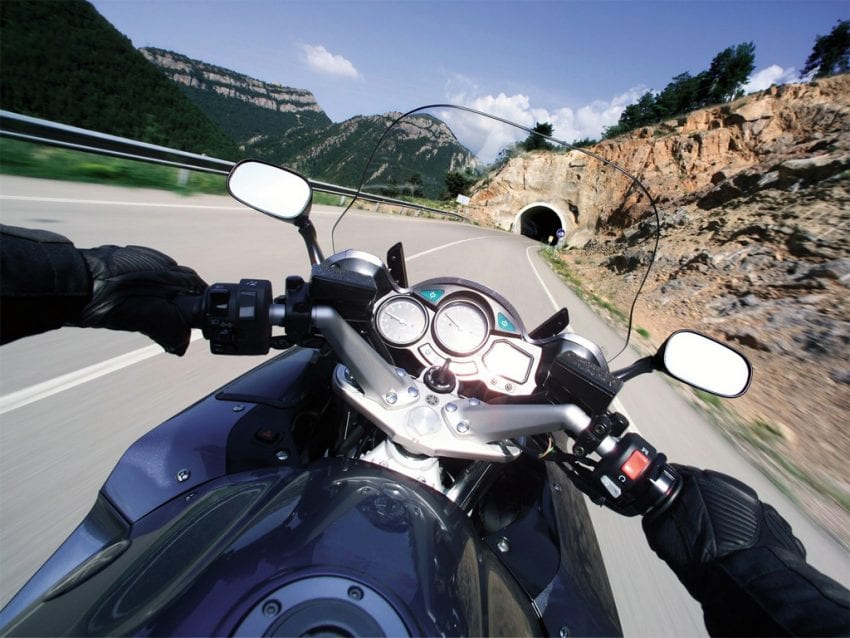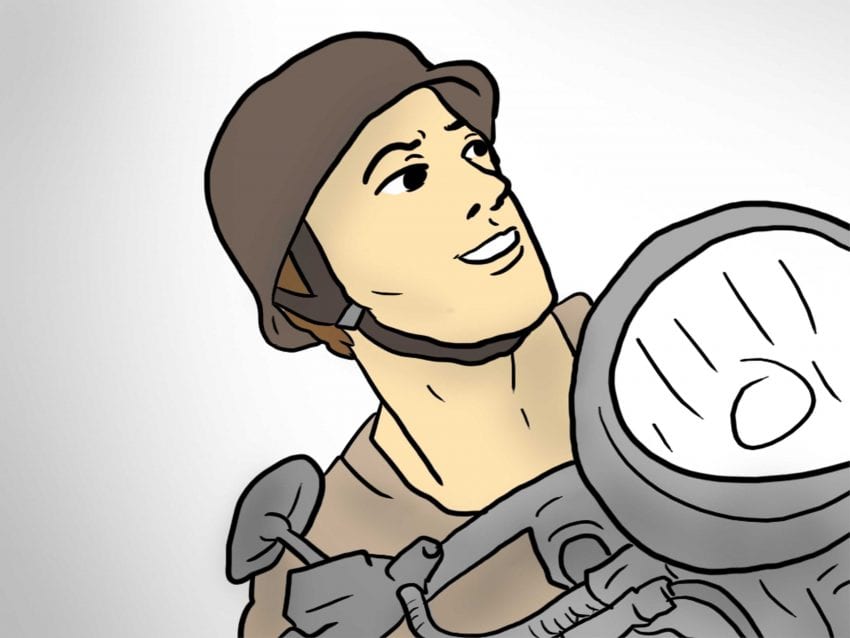If you’ve ever thought about getting a motorcycle, you’re not alone. It’s a favorite pastime for plenty of people around the world. Something is freeing and exciting about the thought of riding a motorcycle, but there are also important considerations to keep in mind.
Primarily you have to think about the logistics of owning a motorcycle and how to make sure you’re doing it safely.
For example, every state and D.C. require you have a Class M motorcycle license or an endorsement before you can operate one. Before you can get a motorcycle license, your state may also require that you first obtain a motorcycle permit.

A lot of people wonder if you can drive a motorcycle with a regular license, and typically the answer is no.
Why is that? Well first, motorcycles are dangerous. The risk of a crash being fatal is 26 times higher than in cars per vehicle mile traveled according to Esurance. Also, around 25 percent of all motorcycle deaths include a rider with an invalid license.
So, while it can be a fun hobby, what should you know about getting your motorcycle license?
Learning How to Drive a Motorcycle
The best thing to do before you start taking steps to get your motorcycle permit and license is to take a class. If you’re not experienced riding a motorcycle, it can be really important. When you go to a motorcycle class, you’ll learn in the classroom first.
What you learn in the classroom is what’s going to help you with the written test. Then, your class will likely include time spent actually driving, typically beginning in an open space like a parking lot. You’ll learn some basics such as turning and shifting gears.

Once you progress beyond that, the instructors will work on evaluating you and helping you learn in a hands-on way.
The class is important not just to get your permit and license, but to protect yourself and others. According to the Alliance of Bikers Aimed Toward Education (ABATE), around 90 percent of motorcycle riders in a crash didn’t have any formal training.
The Permit
In most states, you have to be at least 18 to get a motorcycle license, and in most states, if you don’t have an existing license or you’re under the age of 18, you will have to get a permit before applying for a license. The requirements to first get a permit and then a license vary quite a bit between states, so you need to check with your state’s DMV.
If you need the permit, you’ll need to complete an education course and pass the written exam. You’ll also do a vision test in most states.
Motorcycle Endorsement

There are motorcycle endorsements that are different from a motorcycle license. However, they do allow you to legally operate a motorcycle in some states. A motorcycle endorsement is another credential that goes along with your regular driver’s license. When you have a motorcycle endorsement, you can legally operate a motorcycle, scooter or moped on public roads.
What Happens If You Operate a Motorcycle Without a License?
If you were to drive a motorcycle without a license, you could land yourself in serious hot water. Along with the safety risks, it can lead to fines and jail time. As an example, if you were caught driving a motorcycle without a license in California, it could mean a fine of up to $1,000 and up to six months of jail time. Florida also has strict penalties for drivers without their motorcycle license, to provide another example.
What Are Motorcycle Insurance Requirements?
Most states require a motorcycle insurance policy—the two exceptions are Florida and Washington. If you’re going to register a motorcycle in other states, you will most likely have to show proof of insurance. You’ll need it for a license plate as well.

Every state has different requirements in terms of the level of coverage required for motorcycle drivers. For example, in the majority of states motorcycle drivers will need at least $25,000 in bodily injury protection per person and $50,000 per accident, as well as $10,000 in coverage for property damage.
Some states have higher limits than this—for example, in Texas, the requirement is $30,000 for bodily injury or death of a person in one accident. Motorcycle insurance laws usually apply both to new riders and riders who are fully licensed.
If you’re interested in driving a motorcycle, check and see what the requirements are in your state.









